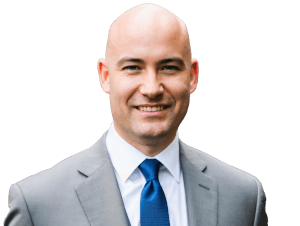If you suspect your loved one has been a victim of chemical restraints or sedation, you should speak to your loved one and to the nursing home. Find out if your loved one consented to the restraint, and ask the caregiver or nursing home manager why restraint was necessary. Determine whether or not the need for the restraint and the possible side effects of treatment were adequately explained to your loved one, and if the nursing home could have resorted to any other solution instead of using a chemical restraint.
If you believe the nursing home used chemical restraints on your loved one, please feel free to call and speak to one of our experienced Georgia nursing home abuse lawyers to find out if you have a case and what you can do to protect your loved one from further harm. You may also wish to report the abuse to Georgia Healthcare Facility Regulation, and speak to an ombudsman to find out how to confront the nursing home over their use of chemical restraints.
Chemical restraints and sedation can have serious consequences, especially for the elderly, so you should act as soon as possible. A Georgia nursing home chemical restraints lawyer could help protect your loved one.
What are Some Signs of Chemical Restraints or Sedation?
Signs of chemical restraints or sedation include changes in behavior, mood swings, and altered or disrupted thinking patterns. Chemical restraints or sedation affect a person’s mental and emotional capabilities, and may cause a person to become lethargic or withdrawn. In some cases, chemical restraints can have life-threatening consequences like heart conditions.
If a nursing home resident is being chemically restrained or sedated, the caregiver may say that strong medication is necessary due to the resident’s unruly behavior. If no family members or friends have witnessed this behavior, however, that may be a clear sign that the nursing home is using chemical restraints or sedation.
Chemical restraints refer to any drugs used on a resident for discipline or convenience. Such medication may only be used if the resident’s medical condition requires it for treatment. Even then, the nursing home must advise the resident on the necessity of using the medication, the possible side effects, and any alternative options. If the resident refuses the proposed treatment, either immediately or later on, the nursing home may not administer it.
For a free legal consultation with a nursing home chemical restraints lawyer serving Georgia, call

Reasons for Chemical Restraints or Sedation in Nursing Homes
Use of chemical restraints or sedation often occurs in nursing homes that are understaffed. In order to reduce the number of staff needed to help treat a resident, caregivers may use chemical restraints or sedation. A resident who is sedated won’t usually ask for assistance, and will take up less of a caregiver’s time, so, unfortunately, nursing homes may try to make up for a staffing shortage by keeping residents sedated.
In other cases, nursing home caregivers may be unaware of the consequences of using chemical restraints, or they may become careless in their use of chemical restraints, administering them where they are not needed or forgetting to take a resident off a medication after a certain amount of time.
Chemical restraints or sedation are also sometimes used to control a resident’s behavior or to discipline them, but unless absolutely required for the safety of the resident or the safety of others, these restraints are illegal.
Types of chemical restraints used in nursing homes include antipsychotics like Risperdal, Seroquel, and Haldol, and other medications like Ativan, Celexa, Zoloft, Depakote, and Zyprexa.
Georgia Nursing Home Chemical Restraints Lawyer Near Me (678) 823-7678
Preventing Chemical Restraints or Sedation in a Nursing Home
In some cases, a resident’s medical condition may require the use of certain drugs for treatment; but in many cases, the costs of using chemical restraints on a nursing home resident far outweigh the benefits. For this reason, nursing homes should do all in their power to avoid using chemical restraints on residents, and should only use sedation as a last resort, after carefully considering all available options.
Before using drugs to treat a medical condition, nursing homes must receive a doctor’s order detailing the condition and the necessity of using that medication for treatment. Before giving the order, the doctor must meet with and examine the resident. However, even with a doctor’s order, the nursing home still bears the responsibility for deciding to use restraints on a resident.
Additionally, nursing homes cannot simply cite a resident’s medical condition as an excuse to use chemical restraints or sedation. Instead, the nursing home should weigh other factors that might affect whether or not the resident needs that medication, and how its use would affect the resident’s ultimate wellbeing.

Contact a Georgia Attorney for Chemical Restraint Claims
The primary responsibility for using chemical restraints or sedation rests with the nursing home. A doctor may suggest the use of certain drugs to treat a nursing home resident, but the nursing home itself is responsible for deciding whether or not to follow the doctor’s advice, and is also responsible for using the drug properly, keeping a record of the resident’s use of the drug, and making sure the resident does not overuse it.
A nursing home may also be held responsible for failing to fully inform a resident about the use of chemical restraints, or for using a chemical restraint against the resident’s wishes.
If a nursing home is found responsible for using chemical restraints or sedation, then that facility is required to compensate the resident for the consequences. For example, if the resident’s use of chemical restraints led to costly medical procedures which wouldn’t have been necessary otherwise, the nursing home is responsible for covering that cost. Since use of chemical restraints often causes nursing home residents unnecessary suffering, nursing homes are also required to provide financial compensation for any resulting pain and suffering. A Georgia nursing home chemical restrains lawyer could help hold the negligent facility accountable for the harm caused. Call today to discuss your case.




